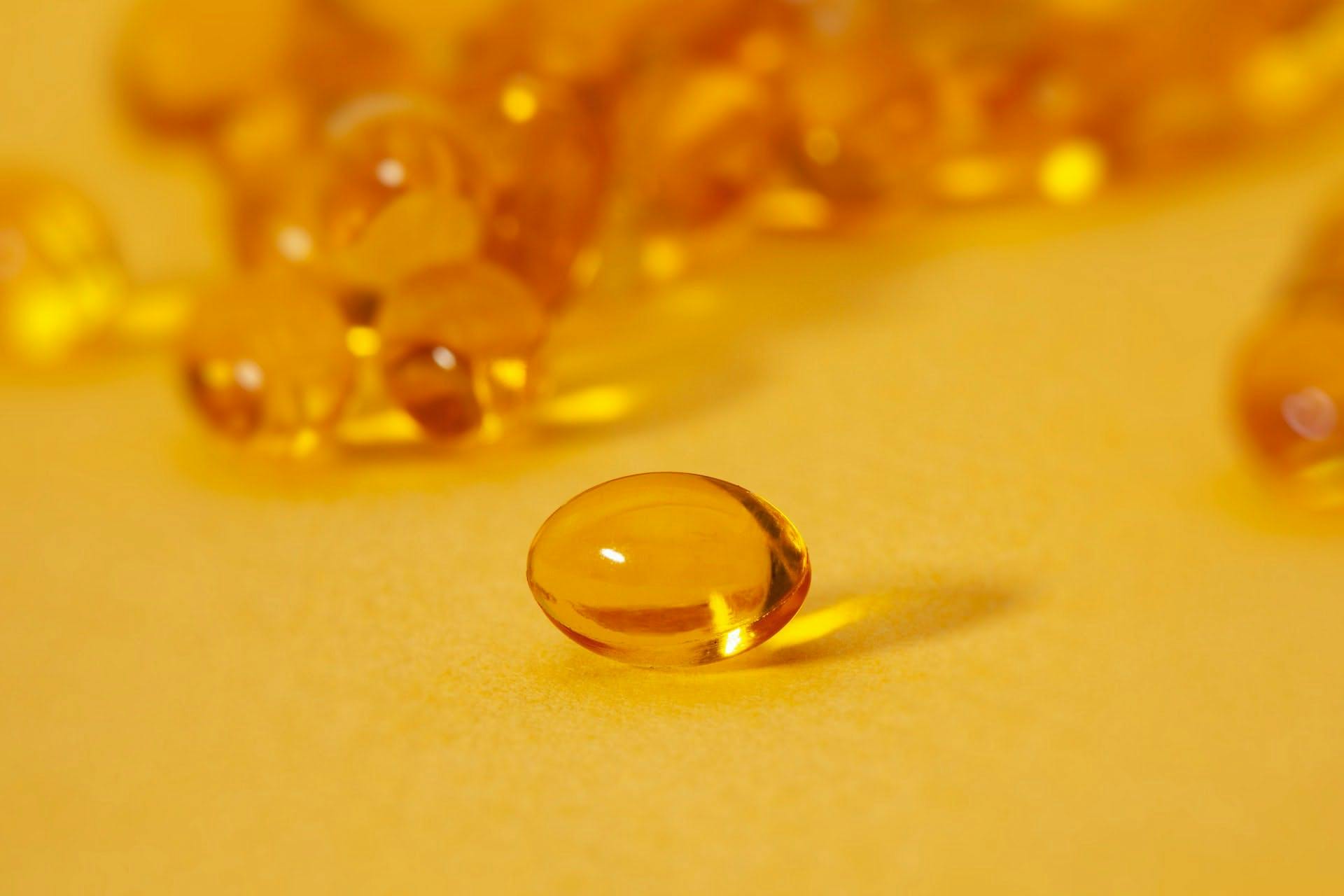The buzz around the microbiome is hard to miss these days, as scientists dive deep into understanding the communities of microorganisms living in and on our bodies and how they affect our health.
If you've ever Googled "gut microbiome," you've probably seen it linked to almost every health issue out there. While some of these connections may not hold up under rigorous scrutiny, there’s compelling research to support an association the microbiome and weight management [1, 2].
While we don’t fully understand all the precise mechanisms linking gut health to weight management, this article will dive into the existing research to provide insights into how your gut microbes may influence your capacity for successful weight loss.
How your gut health can help (and hinder) weight loss
Ranging from vitamins to neurotransmitters and short-chain fatty acids, these compounds can influence other bacteria or directly cross the gut barrier, enter the bloodstream, and interact with our cells — ultimately shaping how our body functions. The consequences, whether positive or negative, hinge on the specific composition of the gut microbiome. Here is what the leading research suggests about the microbiome-body weight connection.
Microbiome transplants
Fecal microbiota transplantation (FMT) involves transferring microbiota from one individual (or animal) to another. It is an invaluable technique in microbiome research because it helps track changes in the host organism, showing the specific impact of microbial species.
FMT studies conducted in both animals and humans have demonstrated the powerful influence the gut microbiome has in dictating body weight. In these experiments, germ-free mice—mice raised in a sterile environment without any microorganisms — played a crucial role. When germ-free mice were given microbiomes from humans with obesity, they also developed obesity. In contrast, mice that received microbiomes from individuals post-bariatric surgery stayed lean [4, 5]. This suggests that FMT might be a potential treatment for human obesity [6].
Microbiome patterns
Gut microbial richness (total bacterial species) and diversity (the abundance of individual bacteria from each species) serve as important markers of gut health. Notably, lower gut microbial richness is tied to obesity, whereas a more diverse ecosystem is associated with effective weight management [7, 8].
Reduced gut microbial diversity has also been linked to other markers of poor metabolic health like insulin resistance and chronic inflammation, conditions frequently co-occurring in individuals dealing with weight-related issues [9].
Gut microbiota composition varies with obesity severity. Compared to normal-weight counterparts, obese individuals show clear decreases in the bacterial species Akkermansia, Faecalibacterium, Oscillibacter, and Alistipes genera. Obesity-associated microbiomes also show higher levels of Lactobacillus reuteri, which may contribute to significant weight gain, whereas normal-weight individuals exhibit an increased abundance of Bifidobacterium animalis, Methanobrevibacter smithii, and other Lactobacillus species [10, 11]. These gut microbial “signatures” could serve as early risk diagnostic markers for obesity and related conditions like type 2 diabetes.
Possible mechanisms behind the gut microbiome-body weight connection
While these observational studies are significant, indicating the microbiome's likely involvement in obesity, weight loss, and leanness, studying the underlying mechanisms is crucial. This understanding is essential for informing new treatments targeting gut health to address obesity and related conditions to restore health in these patients.
Below are some hypotheses that are currently thought to contribute to the impact of the gut microbiome on obesity or the host’s ability to lose weight:
1. Energy absorption
Research in obese mice reveals that their gut microbes extract more calories from their diet than lean mice [12]. Studies on germ-free mice carrying an "obese microbiome" showed a significant increase in total body fat compared to those with a "lean microbiome," despite having a similar diet and starting weight [13]. Scientists have hypothesized that the specific gut microbial makeup of patients experiencing weight gain might be more efficient in harvesting energy from the diet, leading to caloric excess and increased body fat [14]. One possible explanation for this effect is a lack of specific butyrate-producing species (which are associated with good metabolic health), but more research, particularly in humans, is needed to explore the impact of gut microbes on caloric extraction [15].
The takeaway: While our gut microbes are essential for health, an unfavorable composition may contribute to weight gain by extracting extra energy from the diet.
2. Modulating appetite and satiety signals
The gut-brain axis is a two-way communication pathway connecting the gut and the central nervous system [16]. It functions through different pathways, and one result of this interaction is the control of food intake, managing both hunger and the sensation of fullness. Within the myriad of metabolites generated by the gut microbiome, specific microbial metabolites are responsible for regulating the release of gut-derived serotonin, which plays a pivotal role in communicating satiety signals to the brain, as well as influencing mood [17, 18]. Moreover, your gut microbes regulate the release of hormones such as glucagon-like peptide-1 (GLP-1), naturally released by gut wall cells, influencing hunger signals in the brain [19].
The takeaway: A diverse gut microbial community with the right species can help regulate appetite and food intake, contributing to effective weight management.
3. Inflammation, insulin signaling, and glucose levels
A dysbiotic microbiome, characterized by low gut bacteria diversity and a high percentage of “bad bugs” or disease-causing microbes, can contribute to leaky gut syndrome. This condition compromises the integrity of the intestinal barrier, allowing harmful substances to leak into the bloodstream and trigger chronic inflammation [20]. This inflammatory response has been shown in both in vivo and in vitro studies in humans and mice to disrupt insulin signaling, leading to glucose variability and potentially contributing to weight gain.
The takeaway: The intricate interplay between the gut microbiome, leaky gut, inflammation, and insulin signaling highlights the complex nature of metabolic health and reveals potential new ways of managing these issues by targeting the root cause — an imbalanced gut microbiome.
The best foods for gut health and weight loss
Understanding the connection between gut microbes and diseases like obesity is like the chicken-and-egg dilemma: which comes first? Is it changes in the gut microbiome leading to weight gain, or does weight gain trigger alterations in the gut microbiome, exacerbating the disease?
While research has not yet reached a clear answer to these questions, it's likely that gut microbes play a substantial role in both the onset and progression of obesity and its related conditions.
While unhealthy diets may negatively impact gut microbes and contribute to the rise of chronic diseases like obesity, dietary interventions that are able to manipulate the gut microbiome and host metabolism have been successful in restoring gut health, reducing inflammation and helping with weight loss [21]. Studies in humans demonstrate that beneficial microbial changes due to dietary interventions can occur within just 24 hours [22]. This approach may aid in managing, treating, and preventing chronic diseases, as well as supporting weight loss.
Here is a list of foods that you may want to consider incorporating into your diet to enhance gut health, particularly is weight loss or management is your goal:
1. Prebiotic-rich foods
Prebiotics, naturally found in plant-based foods, are essential for nourishing beneficial gut bacteria and supporting overall health. Recent research suggests that increasing prebiotic fiber intake can dampen the brain's response to high-calorie food stimuli [23]. This may help prevent overeating of calorie-dense foods and offer a potential avenue for weight management. Incorporating prebiotic-rich foods like leeks, mushrooms, flaxseeds, cabbage, and almonds, particularly as replacements for ultra-processed foods, may assist with weight loss.
2. Fermented foods
Fermented foods, such as kimchi, sauerkraut, and yogurt, have been dietary staples around the world for thousands of years. The fermentation process not only aids in food preservation but also boosts beneficial gut bacteria as they contain live probiotic strains that support gut health [24]. Regularly eating fermented foods has shown health benefits, including improved digestion, enhanced immunity, and weight loss, suggesting their potential in nutritional therapies for obesity.
3. Colorful fruit and vegetables
The vibrant colors in healthy fruits and vegetables are attributed to special plant compounds known as plant-derived bioactive compounds or phytochemicals. These compounds nourish a diverse range of microbes, fostering community richness and diversity that is associated with maintaining a healthy weight [25]. For example, polyphenols in oolong tea have demonstrated the potential to enhance the beneficial microbial population while reducing harmful bacteria, and proanthocyanidins from grape seed and cranberry extract have been associated with improved intestinal barrier integrity and reduced inflammation, both of which are conducive to weight loss.
Key takeaways
- Understanding the gut microbiome is crucial for overall health and its link to various diseases, and research on its connection to weight opens up promising possibilities for innovative strategies in weight management and treatment.
- The well-established connection between the gut microbiome, health, and weight management is clear, but the exact mechanisms linking gut health to weight loss have yet to be determined.
- While the precise mechanisms are still being established, the richness and diversity of the gut microbiome, along with the presence or absence of specific bacterial species, have been linked to obesity and poor metabolic health.
- Gut microbes can impact weight through various mechanisms, influencing energy absorption, regulating appetite signals, modulating gut permeability, and affecting inflammation levels - these factors have been demonstrated to disrupt insulin signaling, contributing to weight gain.
- The quickest and most effective method to shape the composition of your gut microbiome is through dietary choices, with positive microbial changes observable within just 24 hours of dietary interventions.
- Incorporating prebiotic-rich foods like leeks, mushrooms, flaxseeds, cabbage, and almonds, along with fermented foods and colorful fruits and vegetables, can enhance gut health and contribute to weight management.
References:
- https://www.nature.com/articles/s41564-023-01426-7
- https://www.ncbi.nlm.nih.gov/pmc/articles/PMC3601187/
- https://www.ncbi.nlm.nih.gov/pmc/articles/PMC9286904/
- https://www.science.org/doi/10.1126/science.1241214
- https://pubmed.ncbi.nlm.nih.gov/26244932/
- https://pubmed.ncbi.nlm.nih.gov/32181906/
- https://www.nature.com/articles/nature12506
- https://www.frontiersin.org/articles/10.3389/fped.2021.657020/full
- https://pubmed.ncbi.nlm.nih.gov/34110438/
- https://www.cell.com/cell-host-microbe/pdf/S1931-3128(19)30348-8.pdf
- https://www.nature.com/articles/ijo2011153
- https://www.ncbi.nlm.nih.gov/pmc/articles/PMC3601187/
- https://pubmed.ncbi.nlm.nih.gov/17183312/
- https://www.sciencedirect.com/science/article/pii/S075333222200066X
- https://pubmed.ncbi.nlm.nih.gov/32694818/
- https://www.ncbi.nlm.nih.gov/pmc/articles/PMC6469458/
- https://pubmed.ncbi.nlm.nih.gov/25439045/
- https://pubmed.ncbi.nlm.nih.gov/25217810/
- https://www.tandfonline.com/doi/full/10.1080/19490976.2023.2274124?src=
- https://pubmed.ncbi.nlm.nih.gov/31388093/
- https://www.ncbi.nlm.nih.gov/pmc/articles/PMC4255291/
- https://www.ncbi.nlm.nih.gov/pmc/articles/PMC3957428/
- https://gut.bmj.com/content/early/2023/10/04/gutjnl-2023-330365
- https://www.ncbi.nlm.nih.gov/pmc/articles/PMC9916812/
- https://www.ncbi.nlm.nih.gov/pmc/articles/PMC8068854/


